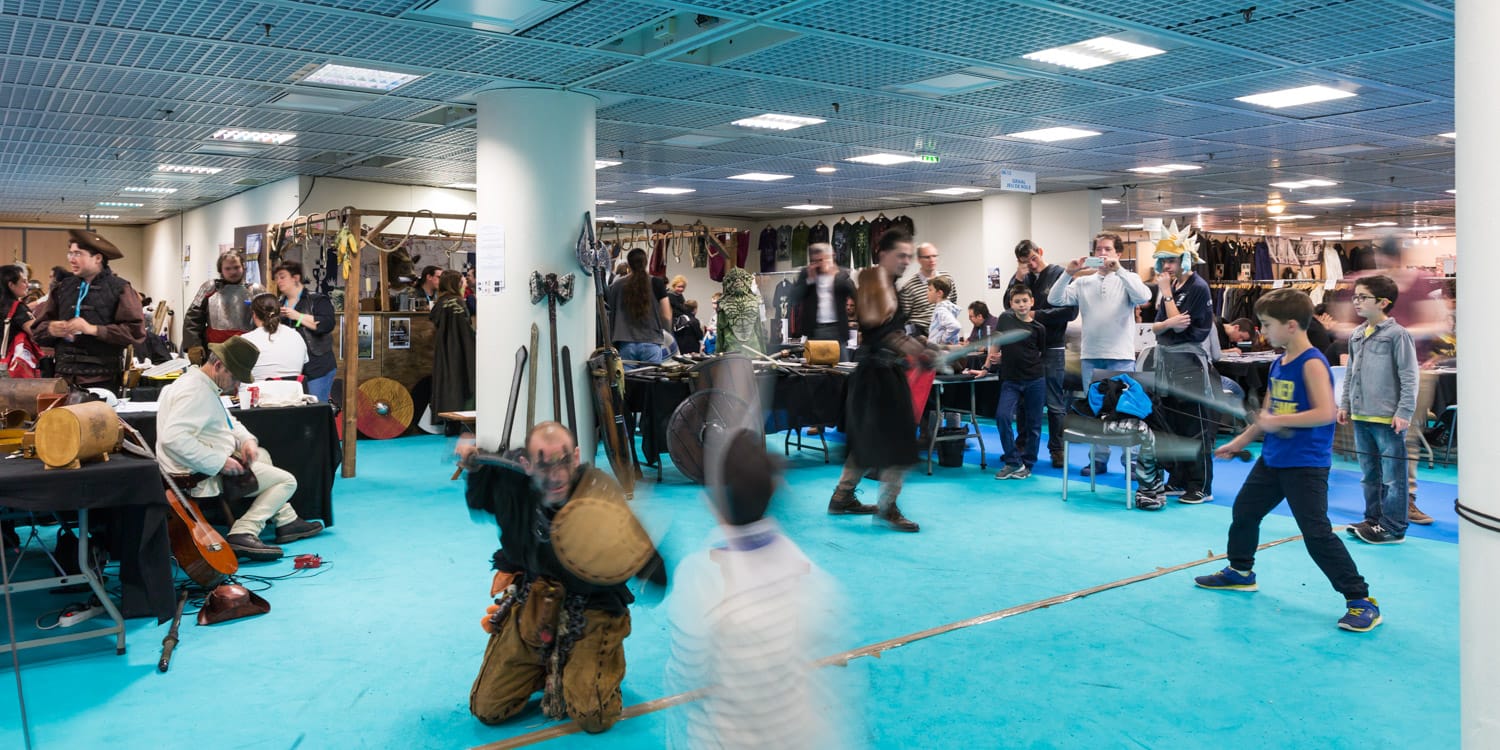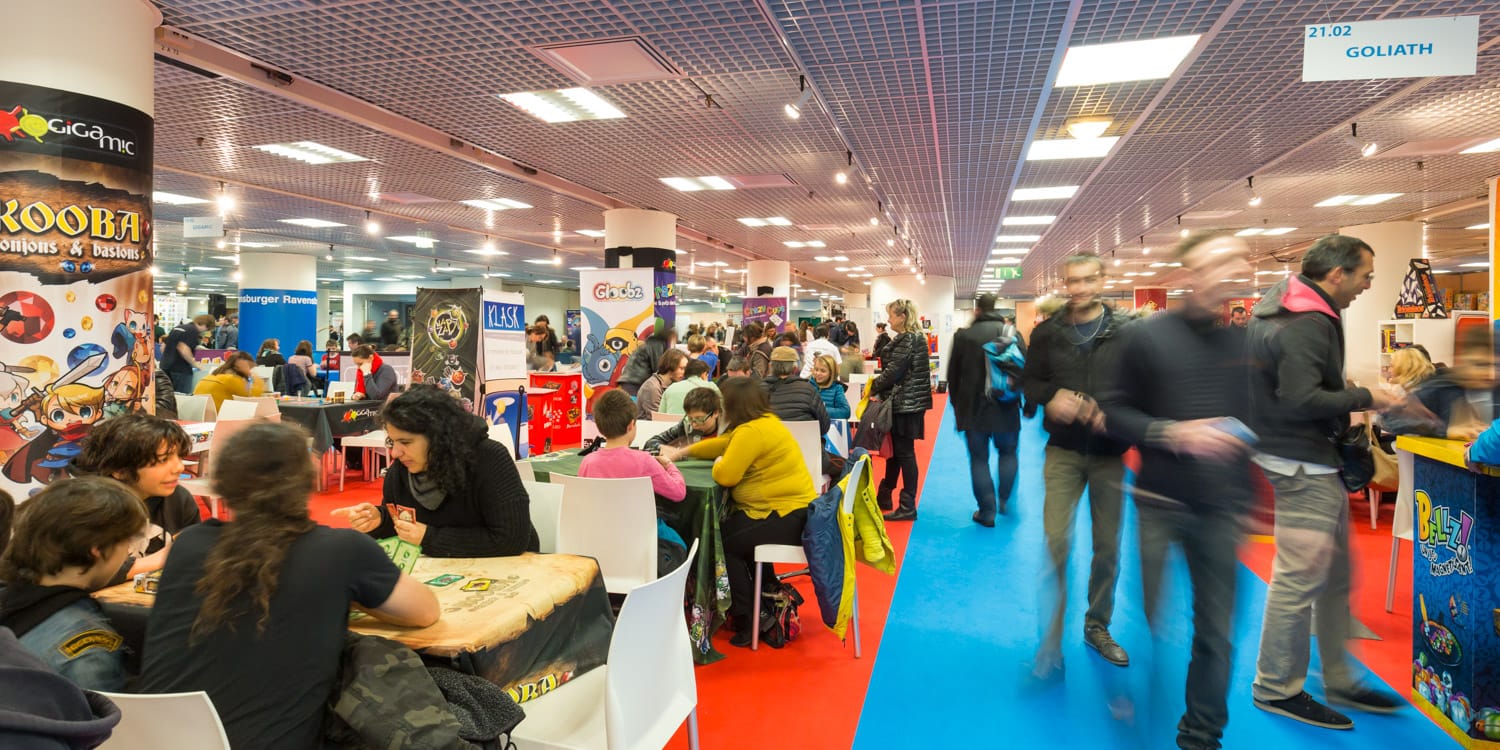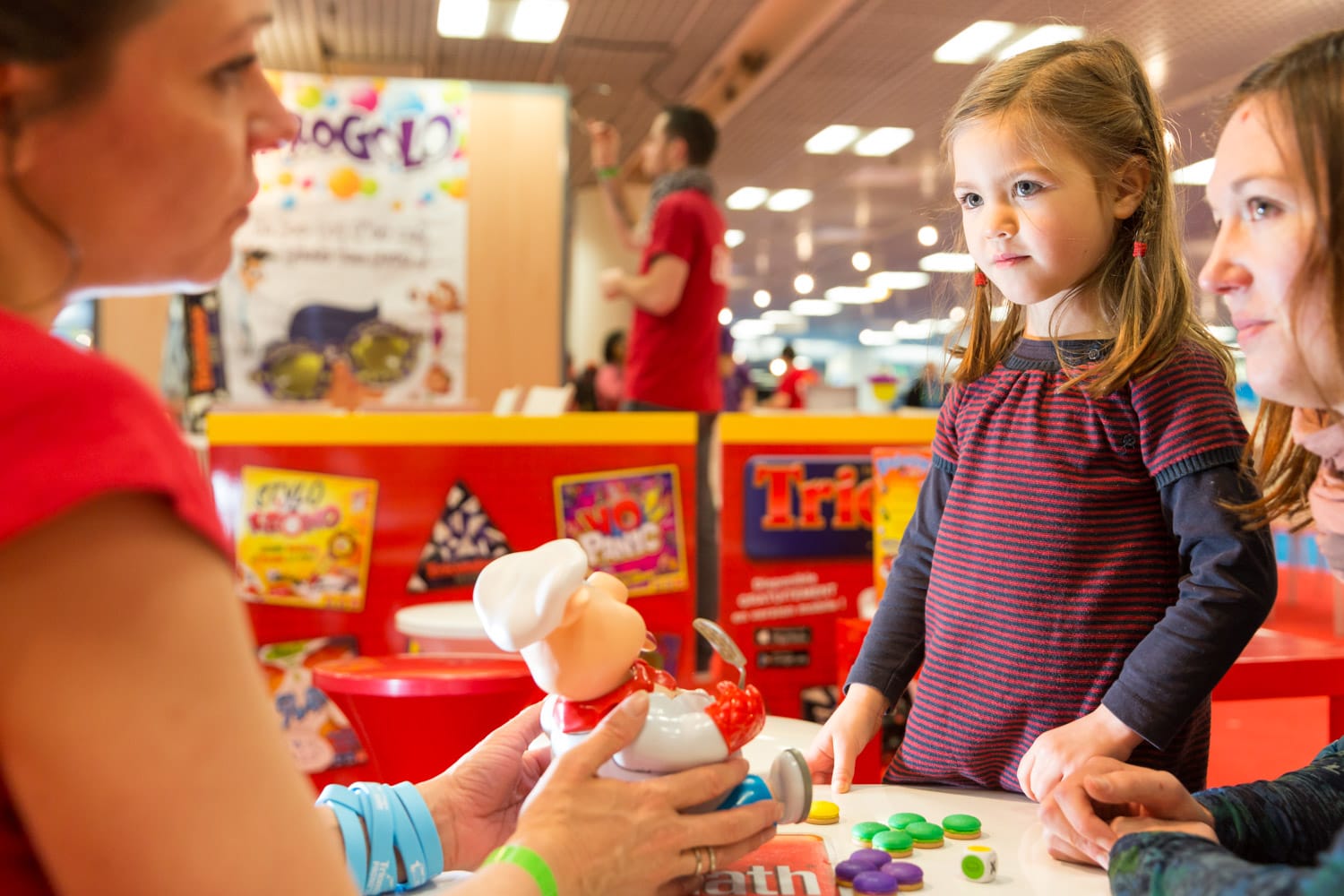During the awards ceremony at the International Cannes Games Festival, three men walked onto the stage with Cuban hats, throwing fake money to the audience. They were the ones behind Mafia de Cuba, an intrigue and deception board game set in La Habana during the Cuban revolution. The game was one of three nominees for the As d’Or Award (Best Game of the Year) and these creators had decided to project its universe into ours by becoming the game’s characters in real life. Mafia de Cuba didn’t win, but this stage act set the mood for the following days: a relaxed atmosphere of confraternity that remained for the whole festival.
After the Spiel International Fair, the Cannes festival is the largest in Europe dedicated to board games. This year saw it celebrating its 30th edition, and as such, an exhibition with some of the highlights from the past three decades was held. The focus of the Cannes Game Festival is to gather board game fans and offer them a glimpse of the games coming out in the next months, as well as to serve as a meeting point for authors, publishers, distributors, and retailers.

Copyright Palais des Festivals et des Congrès Cannes/ Hervé Fabre.
FROM AN IDEA TO THE SHELVES
In one of the corners of the expo floor, a man in his fifties is explaining the rules of a new game that will come out in May. The name of the game is Imagine, a party game conceived in Japan in which players take turns to arrange transparent cards with icons on them while the rest of the group try to name the object, movie, or situation the resulting image depicts. Everyone who gathers around the table seems to enjoy the game, and that makes Matthieu d’Epenoux, the CEO of the game’s publisher Cocktail Games, rather happy. He has more than 15 years of experience in the industry and has recently started travelling around the world in search of a game that could appeals to a majority of the global population. That’s how he happened across Imagine at a trade convention in Japan, promptly inviting the pair of creators to France, who seemed overwhelmed at the number of people interested in board games at the festival.
Aside from the expo floor, the festival also held several conferences during the weekend.
One of them was given by French author Antoine Bauza and Canadian author Eric Lang, who discussed the craft of making board games. They talked on how they usually begin with a story in mind, and how they choose mechanics that help them tell it to players. While Bauza usually works on his own projects and Lang works with third-party licenses—he just announced that he is working on a Bloodborne (2015) board game published by Cool Mini or Not—they share the importance of playtesting the game a lot. “When my playtesters ask me to play the game again without asking them, it’s a good signal,” says Lang. For him, there is not much difference between European and American games. Bauza thinks that both universes are mixing and it’s becoming more difficult to differentiate them. Antoine Bauza and Eric Lang talked in front of an audience formed of industry veterans but also newcomers who were interested in knowing how to publish their first game.Every night, at one of the upper halls of the Cannes Festival Palace,more than 400 authors showcased their games and had playtest sessions to receive feedback.

Copyright Palais des Festivals et des Congrès Cannes/ Hervé Fabre.
In the past, authors like Antoine Bauza—known for 7 Wonders (2010) and Hanabi (2010)—or Bruno Cathala—creator of Five Tribes (2014) and Cyclades (2009)— started their careers by showing their first prototypes during these sessions, and so now many of the attendees are looking to follow that same path. The space was crowded, and on every table there were players eager to play new prototypes and publishers looking for the next big hit. One of the most acclaimed publishers nowadays is Space Cowboys, a small company founded by experienced people from the industry that strictly releases games only when they are ready. Their games, such as Splendor (2014) and T.I.M.E. Stories (2015), have become instant classics, so it’s eager eyes that fall on the new games the publisher is preparing for 2016. One of those is Route 666, a game by English author Martin Wallace, which will try for a new approach to the many zombie-universe games. Players will lead a team of five survivors in a place infested by zombies. They will have to manage their resources and decide their path by taking turns with other players on each round before dealing with the zombies by rolling dice. The game has a fast pace and boosts discussion among players. Space Cowboys says that the final version will be ready for Gen Con this year.
Publishers like Space Cowboys work with distributors on marketing activities and make them available at every shop and boutique available. François Décamp is one of the owners of Descartes, the largest board game boutique in Bordeaux, a city in the West side of France. He visits the festival every year but this time it was special, he was part of the jury for naming the best games of the year. After 30 years, he knows everyone in the expo floor and authors and publishers ask for his feedback for their new games. Board game boutiques like Descartes are at the end of the supply chain, but they also have a pedagogical mission: make players learn about new games and offer them a first look at them. Décamp thinks that this is the main advantage of boutiques against online stores like Amazon, which only offer comments from other players. He thinks that this is why boutiques have survived, at least in big cities.
However, he acknowledges that the board game industry is evolving, and specially due to crowdfunding.
THE FUTURE OF BOARD GAMES
These days, crowdfunding sites like Kickstarter are giving everyone the possibility to publish their own board game projects. Games like Cards Against Humanity (2009) and Exploding Kittens (2015) are two of the most known examples but the category, in general, is thriving. According to Ico Partners, In 2015, almost 1,400 board game projects were financed on Kickstarter, with more than 85 million dollars in pledges, becoming the best year ever for board games on that crowdfunding platform. Authors are not the only ones using Kickstarter, as publishers are also using the platform for financing higher quality editions and as a marketing tool.
Another trend in the industry that is starting to grow is the use of digital elements for enhancing the experience. At one of the far ends of the expo floor, a company trying this new field is showcasing some of its products. Volumique is a studio that focuses on creating experiences that have the social component of board games and the interaction of videogames. This year’s World of Yo-Ho is an example of that, where players control pirate ships that they can customize from their phones, and then place them on the game board to challenge other players. Unlike games where you can use a companion app, in World of Yo-Ho the app is essential, it’s like a magical token that can change according to the circumstances.

Copyright Palais des Festivals et des Congrès Cannes/ Hervé Fabre.
Finally, a third trend is bringing existing and popular franchises from the board game world to the digital world as individual apps. Asmodee opened its own digital division dedicated to this and has released games like Ticket to Ride (2004), Small World (2009), and Splendor as game apps for mobile devices and also on Steam. The next step will probably be VR. Ubisoft announced that it’s working on a virtual reality version of the popular game Werewolf (1986), where players will use a VR headset to be immersed in the universe of a small town that’s harassed by werewolves at night. It’s a game of deception where players have to communicate with others in secret and plot strategies with their teams in order to win the game. The challenge of these games will be to maintain the same social features as the original games while offering a more immersive atmosphere and adapting technology to the special needs of each game.
The Festival continued during the weekend, and despite the bad weather in Cannes, more than 150,000 people went to play board games and attend the conferences. The French touch is seemingly at the heart of the current board game movement and in the next years it will only continue to increase.
Header Image: Copyright Palais des Festivals et des Congrès Cannes/ Hervé Fabre.





